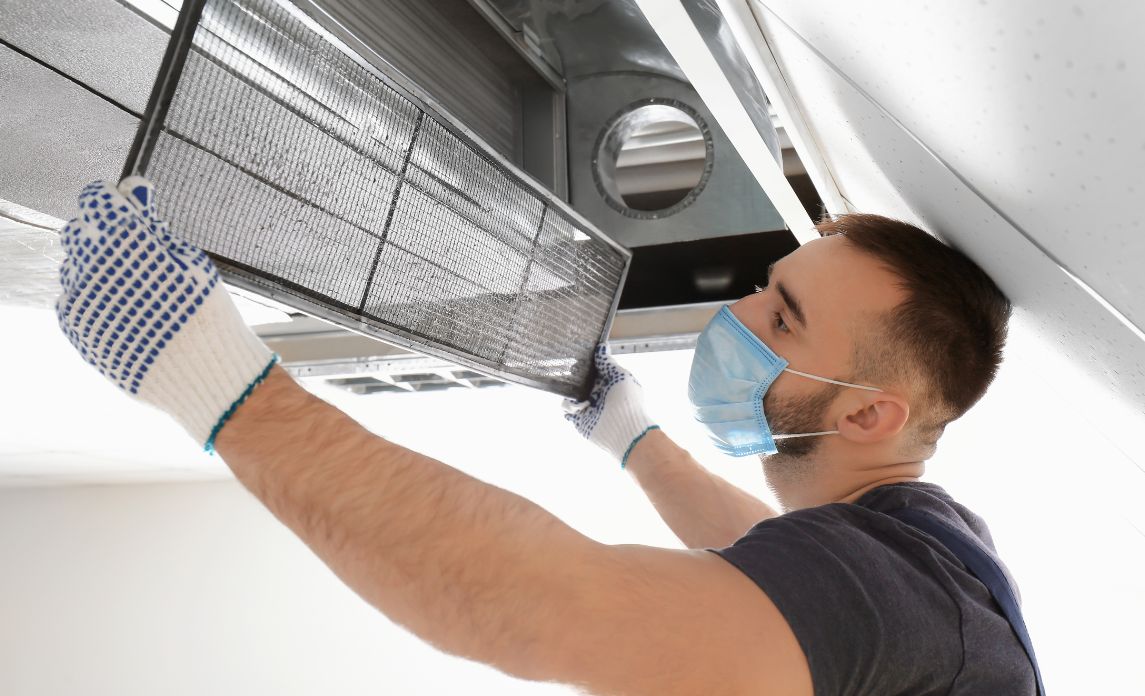When it comes to heating, ventilation, and air conditioning (HVAC) systems, the type of filter used plays a crucial role in maintaining its efficiency. Understanding what is the most commonly used filter in an HVAC system is essential for both homeowners and business owners. The primary keyword, ‘what is the most commonly used filter in an HVAC system,’ will be explored in depth throughout this article.

Introduction to HVAC Filters
HVAC systems are complex networks essential for maintaining indoor air quality. Among various components, filters are pivotal for ensuring airflow is clean and free of pollutants. These filters come in several types, each with unique features and benefits. Selecting the right filter can tremendously impact your system’s performance.
The Importance of HVAC Filters
Why Filters Matter
HVAC filters are designed to trap dust, pollen, and other airborne particles. They are vital for preventing these contaminants from circulating within your living or working spaces. A well-maintained filter helps improve air quality and protects your HVAC system from potential damage.
Maintaining Indoor Air Quality
Good air quality is crucial for health and well-being. Effective filters ensure that the air circulated is clean, reducing allergens and harmful particles. This is particularly important for people with respiratory issues.
Types of HVAC Filters
Fiberglass Filters
Fiberglass filters are one of the most commonly used types in HVAC systems. They are cost-effective and provide basic filtration by capturing large particles of dust and debris. However, they do not filter out smaller particles like pollen or mold spores.
Pleated Filters
Pleated filters are an upgrade from fiberglass filters. Made from polyester or cotton, they have a larger surface area, which allows for better filtration. They capture both large and small particles, providing improved air quality.
High-Efficiency Particulate Air (HEPA) Filters
HEPA filters are known for their high efficiency. They capture up to 99.97% of particles that are 0.3 microns or larger. These filters are typically used in settings where air quality is critical, such as hospitals and laboratories.
Electrostatic Filters
Electrostatic filters use an electrostatic charge to attract and hold dust and other airborne particles. They can be either disposable or reusable, and they offer excellent filtration for small particles.
Selecting the Right HVAC Filter
Factors to Consider
When selecting an HVAC filter, several factors should be considered:
- Filter Efficiency: Determines how effectively the filter captures particles.
- Cost: Budget-friendly options vs. high-end filters.
- Maintenance: Frequency of replacement or cleaning.
- Compatibility: Ensure the filter fits your HVAC system.
The MERV Rating
The Minimum Efficiency Reporting Value (MERV) rating helps consumers understand a filter’s efficiency. Higher MERV ratings indicate better filtration. For most residential systems, a MERV rating between 8 and 13 is ideal.
Installing and Maintaining HVAC Filters
Installation Tips
Proper installation of HVAC filters ensures optimal performance. Always follow the manufacturer’s instructions. Make sure the filter fits snugly without gaps where unfiltered air may bypass.
Maintenance Guidelines
Regular maintenance is crucial for sustained efficiency. Filters should be checked monthly and replaced or cleaned as needed. Neglecting filter maintenance can lead to poor air quality and increased energy consumption.
For more details on professional HVAC system maintenance, visit Simple thing to get
Common Issues with HVAC Filters
Clogging
Over time, filters can become clogged with dirt and debris. A clogged filter restricts airflow, causing the HVAC system to work harder and become less efficient.
Improper Fit
A filter that does not fit properly can allow unfiltered air to bypass the filter, reducing its effectiveness. It’s crucial to choose filters that are compatible with your HVAC system.
Incorrect MERV Rating
Using a filter with an incorrect MERV rating can also cause issues. A filter with a very high MERV rating might restrict airflow too much, while a low MERV rating may not provide adequate filtration.
Benefits of Using the Right HVAC Filter
Enhanced Air Quality
Using the right HVAC filter can significantly improve indoor air quality. This is especially beneficial for individuals with allergies or asthma.
Prolonged HVAC System Lifespan
Regularly using the correct filter and maintaining it can extend the life of your HVAC system. A clean system operates more efficiently, reducing wear and tear on components.
Energy Efficiency
An efficient filter helps maintain optimal airflow, reducing the system’s energy consumption. This translates to lower utility bills and a reduced carbon footprint.
Expert Recommendations
Consulting with HVAC professionals can provide valua ble insights into selecting and maintaining the right filter for your system.
ble insights into selecting and maintaining the right filter for your system.
Professional Assessment
Professional assessments ensure that the filter you choose is compatible with your HVAC system and meets your specific needs.
Customized Solutions
Experts can offer customized solutions, recommending filters that address unique concerns such as allergies, pet dander, or specific environmental factors.
FAQ Section
What is the most commonly used filter in an HVAC system?
The most commonly used filter in an HVAC system is the fiberglass filter due to its cost-effectiveness and basic filtration capabilities.
How often should I replace my HVAC filter?
It’s recommended to check your HVAC filter monthly and replace it every 1 to 3 months, depending on usage and filter type.
Can I use a filter with a high MERV rating in my HVAC system?
While a high MERV rating indicates better filtration, it’s important to ensure that your HVAC system can handle the increased airflow restriction. Consult with a professional before using high MERV filters.
Visiting some Internal links for better understanding about HVAC: